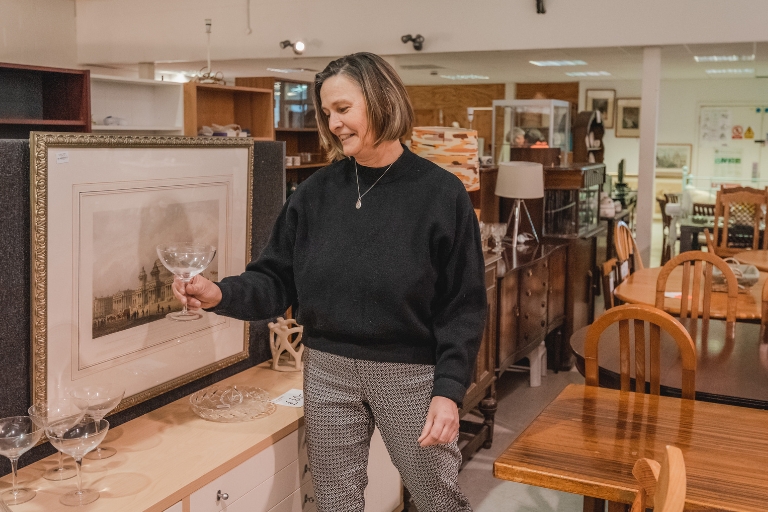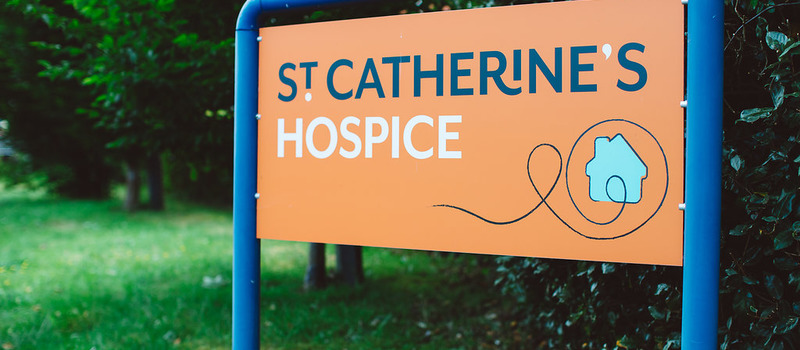A Pioneering Approach to Delivering Expert Out of Hours Care
At St Catherine’s we are always striving to be the very best we can be and are constantly looking at innovative ways to improve the care we provide to local people and their families.
Our Senior Specialist Nurses (SSpN) have extensive skills and knowledge in palliative care and can manage complex clinical and emotional issues. Last year they were added to our “First On-Call Rota” – alongside our doctors in training – to provide more flexibility with out of hours support. Their key responsibilities include assessing and prescribing for ward patients, responding to queries from community patients, offering advice about medication and urgent care to paramedics and community nurses. If the SSpN need support, they can contact a consultant who is “second on-call”.
We caught up with Linda and Jackie, two of our SSpN, to see how they are getting on, and hear about the benefits of this change.
Linda says:
“Being ‘first on call’ means we are on a rota with the doctors in training and the go-to clinician out of hours for the ward and the community. This can be during the week or at the weekend. Sometimes we might stay after hours during the week to admit a patient arriving late or be called during the night to answer urgent queries from our colleagues.”
Jackie adds:
“The main focus of our role is educating colleagues and other healthcare professionals, delivering complex patient care, and providing clinical leadership in the community team. When we are covering the “First On-Call Rota”, we have a thorough handover with the medical team on the ward and introduce ourselves to the patients to ensure continuity.
“It is quite amusing because the patients will often think we are doctors – especially if I am wearing my stethoscope – even though I introduce myself as a Specialist Nurse and wear my nurse uniform! The patients are always welcoming and very happy to receive care and support from us.”
Linda explains:
“We are so proud to be SSpN. The team witness our advanced clinical skills first-hand, which they might find quite aspirational because it shows what is possible if they develop their practice. By taking on responsibilities traditionally carried out by doctors in training, we are demystifying what other nurses may think is quite a daunting step.
There is a very clear career pathway for our nurses now and some are already undertaking courses in advanced clinical practice, independent prescribing, and physical assessment skills. With this training under their belt, they can grow to become a SSpN in the future.
“Our ward shifts are generally very busy but on the odd quiet afternoon we try and do a bit of teaching with the nurses and healthcare assistants too. They love it because they can relate to us and our approach to care. We often explain what we are doing and why, or I might ask them ‘what do you think might be going on here?’ We do a lot of quizzing to challenge our colleagues to think like us.”
Donna Thomas, a Senior Staff Nurse on the ward, says:
“I always feel like I learn something new when I work alongside a SSpN. Their knowledge is incredibly vast, their bedside manner is wonderful, and they are so happy to teach as they work. This impacts our team in such a positive way. I really aspire to be like them in the future and have already started the physical assessment skills module at university.”
As well as benefitting our wider nursing body, Jackie – who has been a nurse for over 30 years – explains why working on the ward during out of hours has been beneficial for her practice as well.
“At first it felt quite daunting, but now we are really enjoying the challenge of making advanced clinical decisions. We always have the support of a consultant if we need it, which is great. I have been using and developing my physical assessment skills more and I am also learning lots from the Clinical Nurse Specialists on the ward. They are very good at sharing their knowledge with me, but they are also learning lots from me too. There is a great bit of clinical partnership between us, and we always work together to come up with a plan for the patients.
“Our working relationship with the team on the ward has really improved. From an organisational point of view, we have been trying to reduce silo working and this has really helped. By role modelling our advance clinical practice to colleagues across the organisation we are role modelling the benefits that working across departments can have.”
Linda agrees:
“We are making quite significant clinical decisions when we are working on the ward and being the lead clinician has really affirmed our practice.
“I have always accepted responsibility for the clinical decisions I make after assessing a patient. Now, when working independently in the community, I feel even more confident in my prescribing, and in making decisions autonomously.”
Cathy Gleeson, Consultant in Palliative Medicine, who works alongside the SSpN says:
“Jackie and Linda’s palliative care experience enables them to manage many of the clinical and emotional issues that arise out of hours – similar to an experienced doctor in training. I feel confident that they can conduct good assessments and ask for help if needed, for example with complex symptoms or medical problems. They work well with ward and community-based colleagues and their inclusion on the rota has provided more flexibility.”
If you are interested in starting your career as a nurse at St Catherine’s, check out what it is like to work for us and view our current vacancies.












